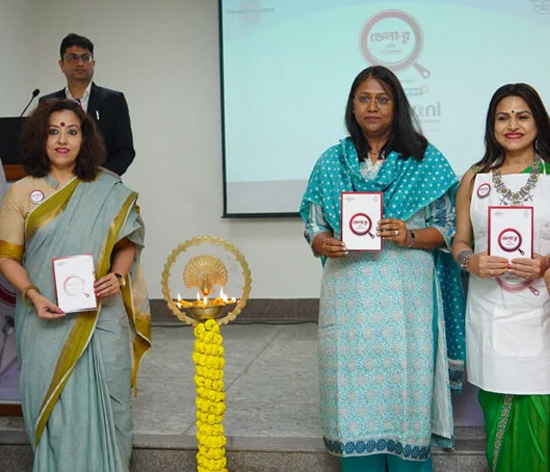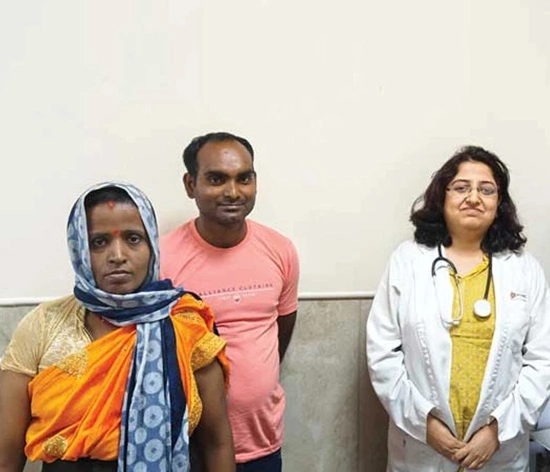About the theme
The Trusts’ entry into cancer care dates back to 1941 when the Tata Memorial Hospital opened in Mumbai as a ‘beacon of hope for the hopeless’. The management of the hospital was handed over to the Ministry of Health in 1962. In 2012, the Trusts launched the Tata Medical Center in Kolkata to address the high prevalence of cancer and the lack of suitable facilities in the eastern and north-eastern regions.
In 2017, with a vision to transform cancer care in India, the Trusts introduced the Cancer Care Programme. The primary focus of the programme is to ensure affordable, high-quality care for patients closer to their homes.
The Cancer Care Programme is implementing its novel ‘Distributed Cancer Care Model’ to address the burden of cancer. The model comprises four pillars: i) Access, ii) Quality, iii) Affordability, and iv) Awareness, Early Detection and Palliative Care.
To provide quality care to the last person possible, a step-down model of infrastructure is being implemented. Tata Trusts is setting up a network of cancer care centres comprising day care centres, onco-pathology labs, screening kiosks and hospitals. The Tata Trusts are expanding their network of 20 hospitals across seven states – Andhra Pradesh, Assam, Jharkhand, Maharashtra, Uttar Pradesh, Odisha and Gujarat — through collaborations with state governments and like-minded organisations.
The centres follow the treatment guidelines and pathways of the National Cancer Grid (NCG), a network of over 260 cancer centres, research institutes, patient groups, and charitable institutions. In addition, a Central Command Centre is being envisaged to link all centres and provide services such as virtual consultations, remote radiology and pathology reporting, virtual tumour board, etc.
The hospitals are being empanelled with various state and central government insurance schemes to make the treatment affordable.
Prevention, early detection and palliative care efforts focus on down-staging and reducing the cancer burden. One of the key issues concerning cancer in India is late-stage detection in over 70% of the cases. To tackle this problem, the team is working on both advocacy and implementation levels to reverse the current 30:70 ratio of early to late detection to 70:30 over a period of time.
The Trusts’ interventions span the entire journey of a person affected by cancer. As an integral part of this effort, impactful awareness campaigns are being driven to encourage early diagnosis and prompt action. To explore how campaigns like Khud Se Jeet, Gaanth Pe Dhyan, and Kaise Ka Cancer are sparking awareness nationwide, click here.
Community outreach programmes:
- Delivering preventive health at community level using the state health system, with the support of partner organisations. The aim is to strengthen the populations’ knowledge, practice and attitudes toward cancer.
- Developing awareness programmes and behaviour change communication using sports and games, cultural programmes rallies, storytelling, etc.
- Conducting community-based cancer screening programmes using different cohorts working in the community such as accredited social health activists (ASHAs), auxiliary nurse midwives (ANMs), NGOs, FBOs, Panchayat Raj institute members, community leaders and student bodies.
Training and capacity building: Strengthening the capacities of the healthcare system to prevent and control oral, breast and cervical cancers by supporting the state non-communicable disease (NCD) cell in training and capacity building of healthcare providers.
Tobacco control: Engaging with the National Tobacco Control Programme, advocating the implementation of tobacco-control laws (COTPA), creating tobacco-free educational institutions, supporting higher tax rates, etc. The Trusts also train and sensitise enforcement officers such as the police, municipal corporations, local regulatory bodies, etc.
Management information system: The Trusts use the NCD app released by the government for universal prevention, control, screening and management initiative under Ayushman Bharat, the Government of India’s comprehensive public healthcare programme. This facilitates better patient management, tracking and follow-up.
The Trusts deploy donations to strengthen the government system to promote cancer prevention and early detection so as to make a systemic change in the health sector. Specifically, the funds are used to upgrade infrastructure at sub-centres and primary healthcare centres as well as to train human resources at these sites.
Read about how the Tata Trusts are holistically transforming cancer care in the country by partnering with state governments and like-minded organisations in 'Touching Lives', a publication by Tata Sustainability Group. It showcases a selection of the work Tata companies and the Tata Trusts do for the communities they serve. Click here.



